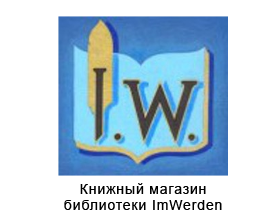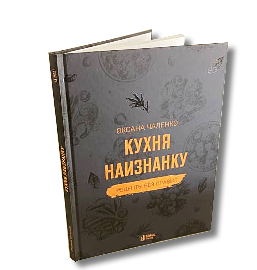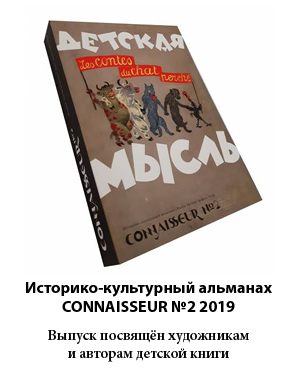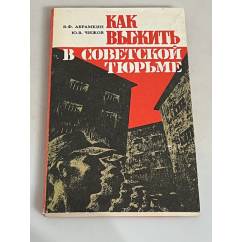
No products
Product successfully added to your shopping cart
There are %d items in your cart. There is 1 item in your cart.

Categories
- Albums (2085)
- Antique (before 1850) old books (before 1941) (584)
- Art and culture (5360)
- Audiobooks, compact discs (CD) (121)
- Autographed books (249)
- Board games (19)
- Books for school (4689)
-
Books in foreign languages
(8482)
- Books in Altai (4)
- Books in Azerbaijani (47)
- Books in Belarusian (46)
- Books in Bulgarian (2)
- Books in Dutch (2)
- Books in English (6654)
- Books in Estonian (10)
- Books in Finnish (7)
- Books in French (43)
- Books in Georgian (37)
- Books in Greek (2)
- Books in Hungarian (6)
- Books in Italian (12)
- Books in Japanese (7)
- Books in Karelian (3)
- Books in Kyrgyz language (6)
- Books in Latvian (46)
- Books in Lithuanian (7)
- Books in Norwegian (4)
- Books in Polish (14)
- Books in Portuguese (2)
- Books in Slovak (2)
- Books in Spanish (17)
- Books in Swedish (3)
- Books in Tajik (34)
- Books in the Adyghe language (3)
- Books in the Balkar language (8)
- Books in the Bashkir language (73)
- Books in the Buryat language (5)
- Books in the Kalmyk language (8)
- Books in the Karachai language (1)
- Books in the Komi language (5)
- Books in the languages of the peoples of the Caucasus (7)
- Books in the Mari language (17)
- Books in the Mokshan language (1)
- Books in the Mordovian language (3)
- Books in the Nogai language (1)
- Books in the Tatar language (101)
- Books in the Udmurt language (10)
- Books in the Yakut (Sakha) language (27)
- Books in the Yarzyan language (2)
- Books in Ukrainian (973)
- Books in Uzbek (9)
- Chuvash language books (29)
- Kazakh language books (8)
- Business. Economy (1624)
- Calendars (41)
-
Children's Literature
(10387)
- Books for parents (354)
-
Children's creativity and leisure
(922)
- Children's games. Experiments and experiments (15)
- Coloring pages (12)
- Crafts, cooking for children (6)
- Drawing for children (11)
- Make with your own hands (29)
- Modeling, application (7)
- Organization of children's parties (2)
- Origami, paper craft (5)
- Puzzles, crosswords for kids (7)
- Questionnaires, diaries, albums (1)
-
Educational and educational literature for children
(1740)
- Attention. Imagination. Memory (27)
- Basic security (4)
- Creative development (46)
- Foreign languages (102)
- General development. Manuals, reference books (83)
- General preparation for school (45)
- Introduction to the outside world (69)
- Logic. Thinking (31)
- Math and counting (43)
- Teaching reading and writing (91)
-
Educational literature for children
(772)
- Biographies for children (37)
- Books for boys (21)
- Books for girls (19)
- Culture, art, religion (48)
- Encyclopedias, reference books and other educational literature for children (182)
- History for children (86)
- Nature and the environment (244)
- Psychology. Etiquette (12)
- Science, technology, transport (54)
-
Fiction for children
(4341)
- Books for kids (111)
- Books on cartoons and films. Comics (81)
- Detectives and adventures for children (193)
- Foreign prose for children (307)
- Myths. Legends. Historical prose for children (69)
- Poetry for children (147)
- Russian prose for children (416)
- Science Fiction, Fantasy and Horror for Kids (118)
- Tales (503)
- Tales and stories about animals (144)
- Soviet children's books (901)
- Toy books (40)
- Collected works. Multivolume editions (3672)
- collection sets (53)
- Comics (53)
- Cookery (1372)
- Dictionaries. Phrasebooks (1324)
- Electronic books (10)
- Encyclopedia (1019)
- Engravings (7)
- Feng Shui (112)
- Fiction (84421)
- German and Germany (35695)
- gramophone records, vinyl (131)
- Guides (2051)
- Healthy lifestyle. Healthy eating. Fitness (1804)
- History (9762)
-
House. Life. Leisure.
(7686)
- Dom. Life (3164)
- Erotic books, books about sex, kamasutra (193)
- Hobby. Leisure (1660)
- Reference Literature (2169)
-
Sport
(956)
- Aerobics. Fitness. Yoga. Dancing (31)
- Board games (158)
- Combat and martial arts (82)
- Extreme sports (12)
- Gymnastics. Light and weightlifting (8)
- Olympic Games (13)
- Other sports (51)
- Physical culture and sport (73)
- Self-defense. Survival (20)
- Sport games (23)
- Tourism (85)
- Water sports (28)
- Winter sports (18)
- Kits (different books) (139)
- Kits (magazines) (60)
-
Magazines and newspapers
(2551)
- Architecture, interior (9)
- Astrology, esotericism (35)
- Bills (233)
- Calendars 2020 (1)
- Calendars 2021 (3)
- Cars, hunting, fishing (15)
- Celebrities, ZhZL (33)
- Children's magazines (12)
- Computer, technology (4)
- Cooking and Recipes (25)
- Crosswords, Scanwords (2)
- Editions with TV program (133)
- Entertainment magazines (7)
- Fashion, style, beauty (17)
- History (111)
- Hobbies, interests (104)
- Home, family, leisure (74)
- House, garden, vegetable garden (34)
- Literature, theatre, music (235)
- Magazines for men (211)
- Magazines for parents (2)
- Magazines for women (108)
- Medicine, health (153)
- Religion (10)
- Russian press abroad (480)
- Science, technology, fantasy (168)
- Sewing, knitting, needlework (8)
- Society, politics (636)
- Special Editions (57)
- Travel, countries (14)
- Maps, atlases (671)
- Military business. Weapons. Special services (4062)
- Miniature books (148)
- Music. Sheet music (1039)
- Postage stamps (92)
- Postcards (191)
- Posters (37)
-
Professional, educational literature
(24592)
-
Applied sciences. Technique
(2514)
- Agriculture. Veterinary medicine (40)
- Architecture (358)
- Chemical industry (104)
- Construction (445)
- Design (136)
- Energy (68)
- Engineering. Instrumentation (184)
- Food industry (19)
- Jewellery (22)
- Life safety (46)
- Light industry (39)
- Metallurgy (28)
- Mining (83)
- Nanotechnologies (5)
- Oil and gas industry (53)
- Other industries (101)
- Polygraphy (8)
- Radio engineering. Electronics. Communication (263)
- Technical Sciences (330)
- Technology of production (100)
- Timber and wood chemical industry (13)
- Transport (183)
-
Computer Literature
(474)
- Administration. Information security (5)
- Computer for … (16)
- Computer networks. Internet (23)
- Databases (8)
- Design systems (CAD/CAM) (1)
- General questions (41)
- Graphics, design, multimedia, games (27)
- Hardware (4)
- Informatics (27)
- MS Office. Microsoft office programs (11)
- Operating systems (12)
- PC work for beginners (18)
- Programming languages and environments (37)
- Humanities (8814)
-
Legal Literature
(993)
- Civil law (54)
- Civil procedural law. Judiciary (8)
- Comments (12)
- Constitutional law. Administrative law (30)
- Criminal law (40)
- Criminology. Criminalistics (37)
- Customs law (8)
- Financial law (11)
- International law (34)
- Labor law. Social security law (9)
- Land law. Environmental law (3)
- Law enforcement agencies (23)
- Law in general. History and theory of state and law (29)
- Other branches of law (23)
- Regulatory acts. Reference literature (19)
- Right in everyday life (17)
- Textbooks and teaching aids (43)
- Workshops and practical aids (6)
-
Medicine and Health
(2414)
- Applied Medicine (43)
- Clinical Medicine. Internal Medicine (21)
- Cosmetology (20)
- Fundamentals of Medicine. Healthcare System (26)
- General pathology. General therapy (19)
- Narcology (12)
- Nervous system (29)
- Other branches of medicine (89)
- Pediatrics (51)
- Pharmacology. Toxicology (21)
- Popular and alternative medicine (1119)
- Psychiatry. Neuropathology. Sexopathology (71)
- Surgery (18)
- Monographs (1110)
- Natural sciences. Mathematics (2224)
- Social Sciences (5556)
-
Applied sciences. Technique
(2514)
- Religion. Esotericism (6373)
- Russian Abroad (books published abroad) (2598)
- Russian language (774)
- Russian language for children (Textbooks) (155)
- Soviet books until 1992 (12965)
- Yoga Books (158)
- Show All
Как выжить в советской тюрьме. Помощь узнику
319411
Good Condition
Item 1
0,2 kg
Sale the same product...More info
The main objective of the book is to provide legal, moral and spiritual assistance to people who find themselves in conditions of captivity. Information is provided on the rights of prisoners in custody, the main stages and procedures of the investigation and trial, specific recommendations are given on appealing court decisions, and advice addressed to the relatives of the arrested person. The prison world and the dangers awaiting a newcomer are described in detail. Describes the morals and customs of the prison community. Practical recommendations for maintaining health in conditions of captivity are given.
Most of thecirculation (about 40 out of 60 thousand copies)was distributed and distributed free of charge, mainly to prisoners and to their relatives.
Bulat Shalvovich Okudzhava:
“The book is useful. Our prisons continue to remain Soviet. People need to somehow adapt to them without losing their face... To survive, to reflect."
Anatoly Ignatievich Pristavkin:
" This book is necessary not only to the person sitting, but to every person who is trying to survive in our society. It, society, is legally illiterate, lawless - in all spheres of our life and, naturally, in the field of criminal justice. And none of us are safe from that same prison and from that same amount of money. The amazing experience that is concentrated in the book “How to Survive in a Soviet Prison” is needed by every person. This book should be used to teach schoolchildren. A very useful, very necessary book.”
Data sheet
| Publisher | Красноярск: Восток |
| Publication date | 1992 |
| Number of Pages | 192 |
| Bookbinding | Softcover |
All author\'s books:
Seller Info/Map |
Seller type: Private person
Подробнее
Berlin
Germany
Книги из частной библиотеки Дитмара Штюдеманна. (Dietmar Gerhard Stüdemann)
Дитмар Штюдеманн (Вельс/Австрия 1941-2022, Берлин) с 1972 г. работал в Министерстве иностранных дел, занимая должности в Москве, Афинах, Вене, Праге и Киеве. Большую часть своей профессиональной карьеры он провел в Москве, где стал свидетелем не только начала улучшения отношений между Востоком и Западом, но и распада Советского Союза. Во время его работы послом в Украине в 2004 году произошла "оранжевая революция".
Этот опыт сформировал его личность и интересы, которые часто выходили за рамки его обязанностей в качестве дипломата. Он увлекался литературой и культурой, интересовался историей и археологией, проявлял особый интерес к изобразительному искусству, что нашло отражение в его частной художественной коллекции.











